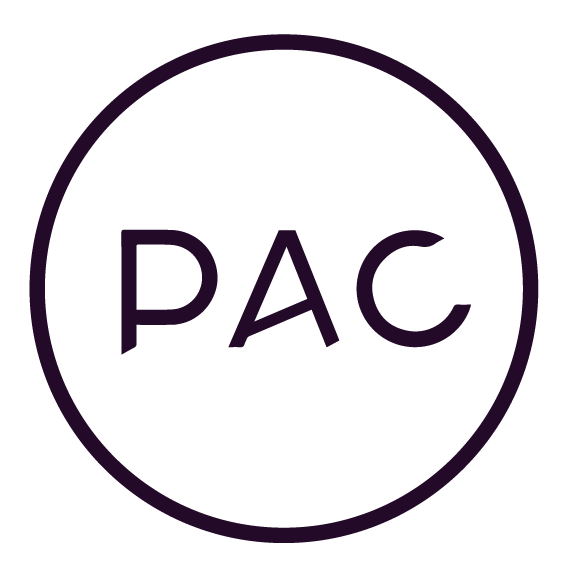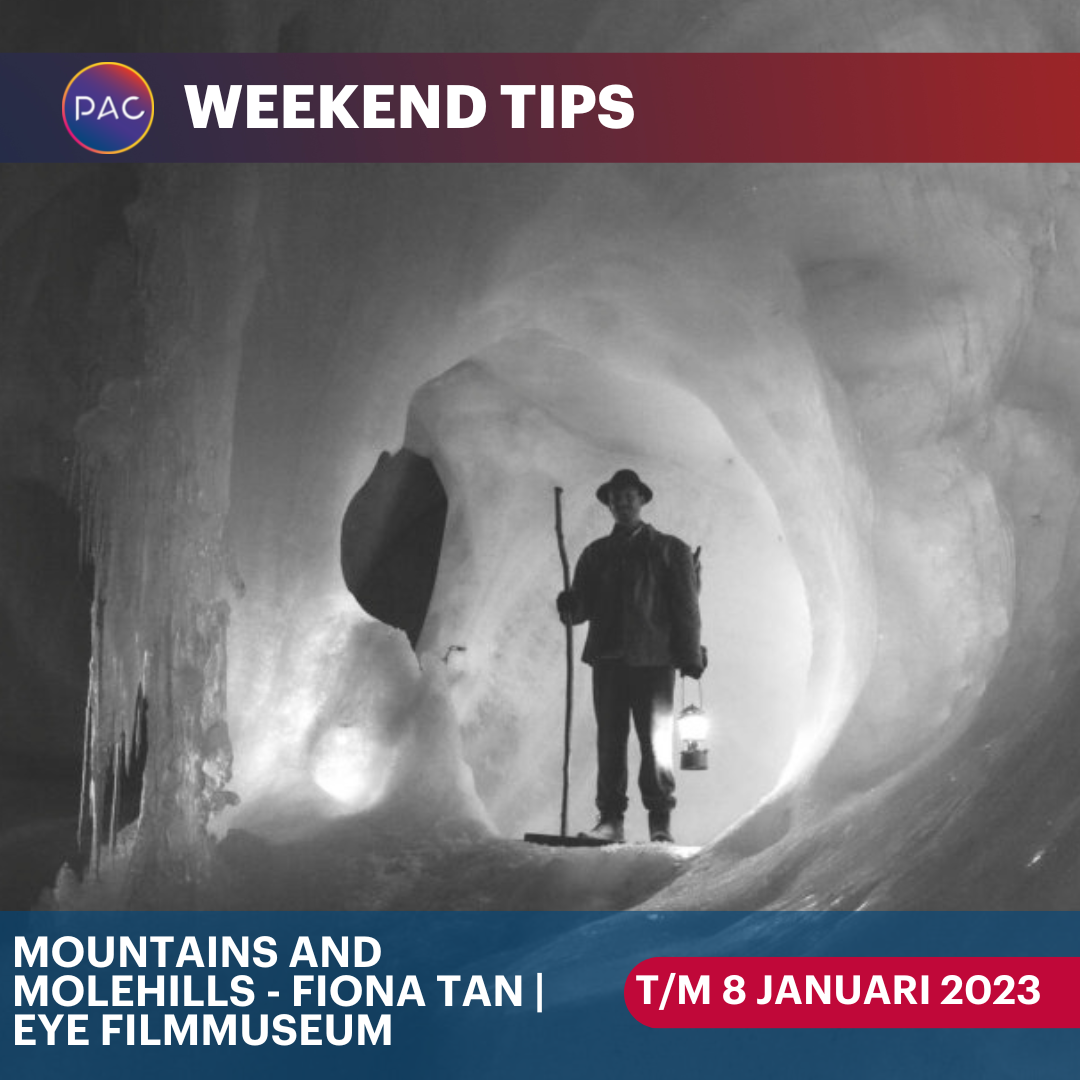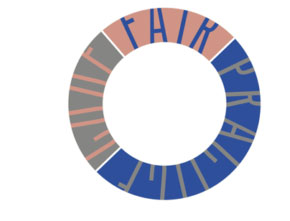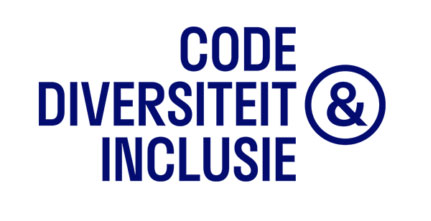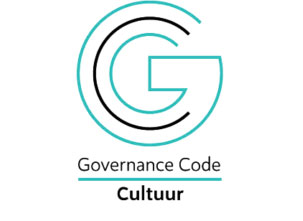Make-up artist Xiu Yun Yu verzorgde niet alleen de make-up van de deelnemers van Project Monolid, ze vroeg hen ook wat ze van hun ogen vinden en hoe zij tegenover bepaalde schoonheidsidealen staan. Hier vind je het verhaal van Dongwei Su.
For English, please click here
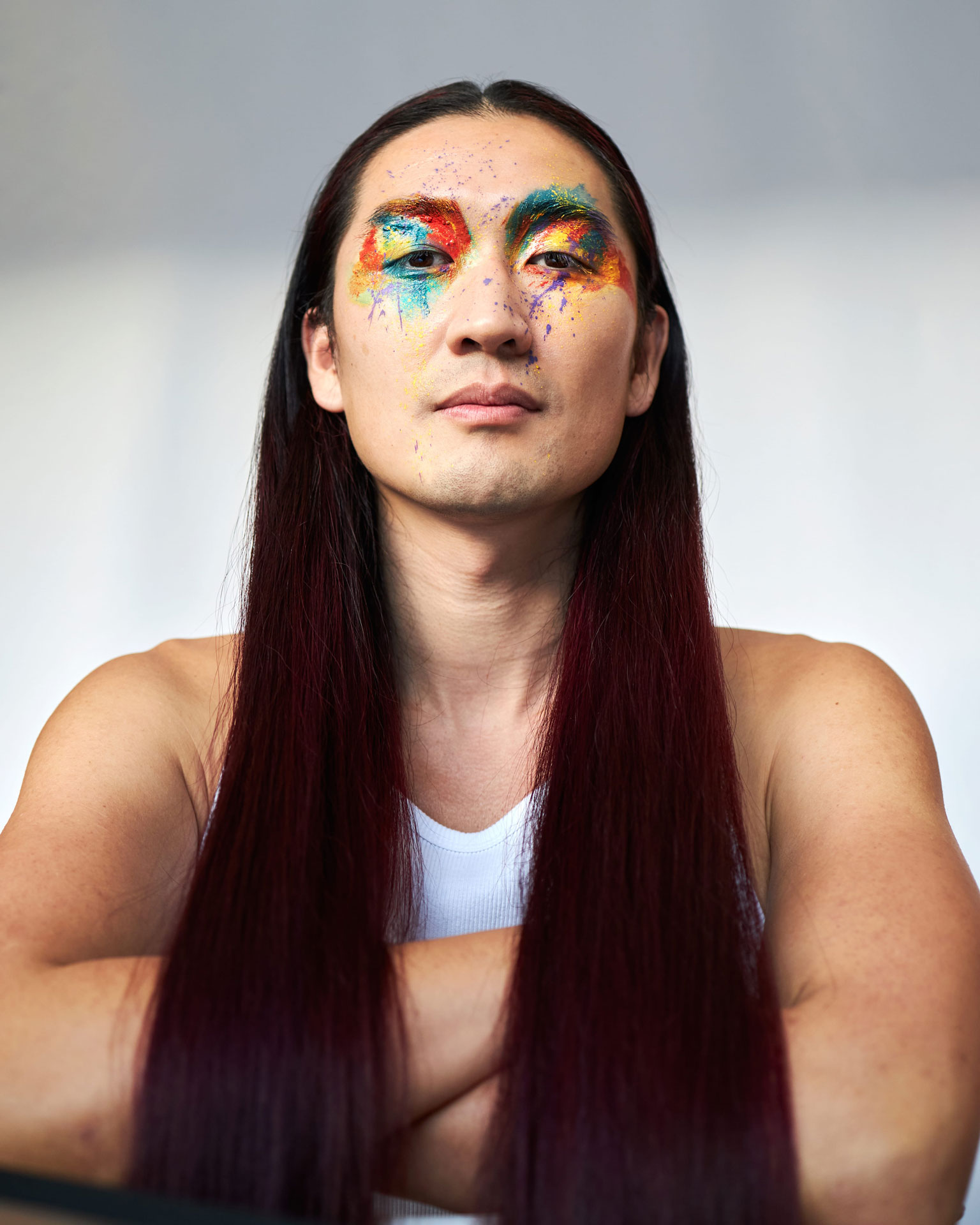
‘Ik weet niet zeker wanneer ik me bewust werd van mijn monolid ogen, maar ik kan zeggen dat ik vrij jong was, waarschijnlijk basisschoolleeftijd. Binnen mijn familie is er de grap dat ik bij mijn geboorte geadopteerd of verwisseld ben, omdat ik als enige van drie kinderen monolid ogen heb en in China geboren ben. Door oppervlakkige opmerkingen van mijn moeder over grotere ogen kreeg ik het gevoel dat mijn ogen niet mooi zijn, maar dit is het grootste deel van mijn volwassen leven eigenlijk niet meer ter sprake gekomen. Ik denk dat ik er zelfbewust en een beetje onzeker van werd toen ik jonger was, maar nooit tot een punt waarop dit zou omslaan in verafschuwing of zelfhaat.
Ik ben me altijd zeer bewust geweest van het schoonheidsideaal van ogen, vooral in Azië. Grote ronde ogen met dubbele oogleden waren altijd zeer gewilde eigenschappen. Dus ik heb dit duidelijk tot op zekere hoogte geïnternaliseerd, waardoor ik vaak nadacht over hoe ik eruit zou zien met dubbele oogleden, vaker dan hoe ik eruit zou zien met monolid ogen. Met de tijd ben ik mijn ogen meer gaan waarderen of ben ik er gewoon onverschilliger over geworden.
Ik denk dat ik nog steeds in het proces van zelfacceptatie zit. Ik zal niet zo ver gaan dat ik mijn ogen als lelijk beschouw, maar ik beschouw ze ook niet als mijn mooiste kant. Hoewel ik al veel modellenwerk heb gedaan, ben ik erg terughoudend om mezelf als model te zien. Ik denk dat dit komt omdat ik Aziatisch ben, maar helemaal zeker ben ik daar niet van. Misschien komt zelfacceptatie ook in de vorm van gewoon omarmen hoe je eruit ziet zonder mooi te hoeven zijn.
“Ik denk dat ik nog steeds in het proces van zelfacceptatie zit. Ik zal niet zo ver gaan dat ik mijn ogen als lelijk beschouw, maar ik beschouw ze ook niet als mijn mooiste kant”
Hoe cliché het ook klinkt, ik zou graag zien dat mensen gewoon waarderen wat ze hebben. Ik spreek natuurlijk ook voor mezelf. Ik weet dat het niet zo eenvoudig is, maar ik denk dat het mogelijk is om zowel het Aziatische als het westerse schoonheidsideaal te waarderen zonder de ander uit te sluiten.
Het zou geweldig zijn als mijn bijdrage aan dit project zelfs maar één enkele persoon zou kunnen helpen die worstelt met zelfacceptatie of iets anders.’
—
Make-up artist Xiu Yun Yu not only did the make-up of the participants of Project Monolid, she also asked them what they think of their eyes and how they view certain beauty standards. Here you can find the story of Dongwei Su.

‘I’m not sure when I became aware of my monolid eyes, but I can say I was pretty young, like around late elementary school. It’s been a running joke in my family that I was either adopted or switched at birth, because I’m the only one out of three kids who was born in China and the only one who has monolid eyes. Through little off-hand remarks of my mother about big eyes I did get the feeling that my eyes weren’t as pretty, but this hasn’t been brought up for most of my adult life. I guess I did get self-conscious about it and a bit insecure when I was younger, but never to a point where it would turn into self-loathing or self-hate.
I have always been very aware of the beauty standard when it comes to eyes, especially in Asia. Big round eyes with double eyelids were always highly sought after traits. So obviously I’ve internalized this to some degree and have often thought about how I would look with double eyelids, preferring that over having monolid eyes. But with time I’ve grown more appreciative of what I have or I’ve just grown to be more indifferent about the matter.
I think I’m still in the process of self-acceptance. I won’t go as far as considering my eyes to be ugly, but I wouldn’t consider them to be my best feature either. For instance, even though I’ve done numerous modelling jobs, I’m very reluctant to consider myself model material. I don’t think I think this way because I’m Asian, but I can’t be entirely sure of that. Perhaps self-acceptance also comes in the form of just embracing the way you look without having to be pretty.
“I won’t go as far as considering my eyes to be ugly, but I wouldn’t consider them to be my best feature either.”
As cliché as it sounds, I would like to see people just appreciating what they have. Speaking for myself too, of course. I know it’s not as simple as that, but I think it’s possible to both appreciate Asian as well as Western beauty standards without one excluding the other.
It would be wonderful if my contribution to this project could help even just a single person struggling with self-acceptance or anything else.’
